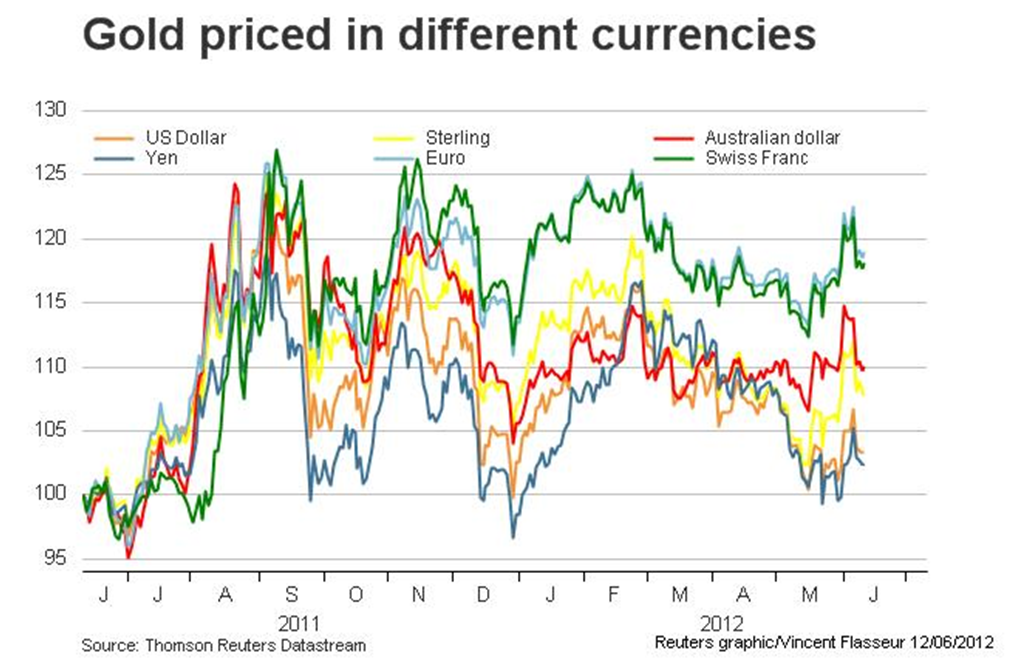June 13, 2012 – EUROPE - Here’s how the Eurozone crisis might come to a head over the summer: a “Spanic,” followed by a “Quitaly,” followed by a “Fixit.” A fresh panic in Spain might be followed by rising demands for Italy to quit if it doesn’t get the same terms its fellow Mediterranean country has been offered, followed by a Finnish departure from the euro that might finally bring the whole saga to a climax. It would be a rough ride — and you wouldn’t want to be holding many assets other than dollars or gold or possibly Swiss francs while it was playing itself out. But at least it might bring a resolution to the crisis. Almost a quarter of the euro’s 17 members have now needed outside help, and Cyprus will probably join the list soon. It is hardly a great record for a monetary experiment, which, let us remember, was meant to bring greater stability — not less. So how could this play out over the summer. Here’s how the sequence might work: First, the Spanic (for a panic in Spain). We’ve just seen one rescue package for the troubled Spanish banks. But who says 100 billion euros is enough? This is a country that is sliding into deep recession, and where the government is cutting spending fast — which is only going to deepen the recession. The economy is forecast to contract by 1.7% this year, and the actual outcome could be much worse. During a recession, businesses go broke, unemployment rises, and loans don’t get repaid because people don’t have any money. None of that is good for the banking system. Imagine how that is going to feel to the Italians. The Spanish get to borrow money at half what it costs them — and this at a time when very high borrowing cost are pushing your country into the fifth recession since the nation joined the single currency. Worse, Italy has to stump up around 22% of the Spanish rescue — borrowing money at 6% to give to its neighbors at 3%. That isn’t going to go down well. Finally a Fixit (for a Finnish exit). The crisis will finally come to a head when one country decides to get out. Finland is the most likely. Why? Because it is a small nation with a strong economy. It is easy to head for the door. Finland would be better off on the first day, just as Estonia was when it decided to leave the ill-fated ruble zone created after the collapse of the old Soviet Union. It doesn’t particularly have to worry about the impact on the European Union, in the way that Germany would if it opted out. If a country such as that leaves, it is effectively game over, but no one can really say that of a tiny place such as Finland. And it has a strong anti-euro political grouping; the True Finns scored well in the last election and may well improve their position in the polls. Finland is already demanding collateral for its portion of the Spanish loan. That could well turn into a deal-breaker — no collateral, so we’re out of here. Once one country leaves, it is much easier for the next to leave, in much the same way as it is easier to be the second person to leave a really bad party than the first. –Market Watch
Last edited by Carol on Thu Jun 14, 2012 12:29 pm; edited 2 times in total











